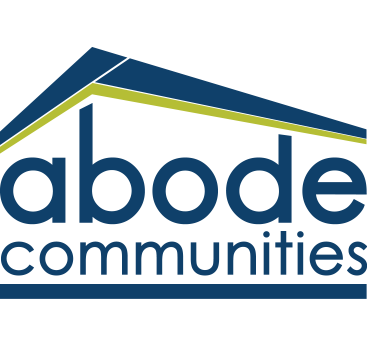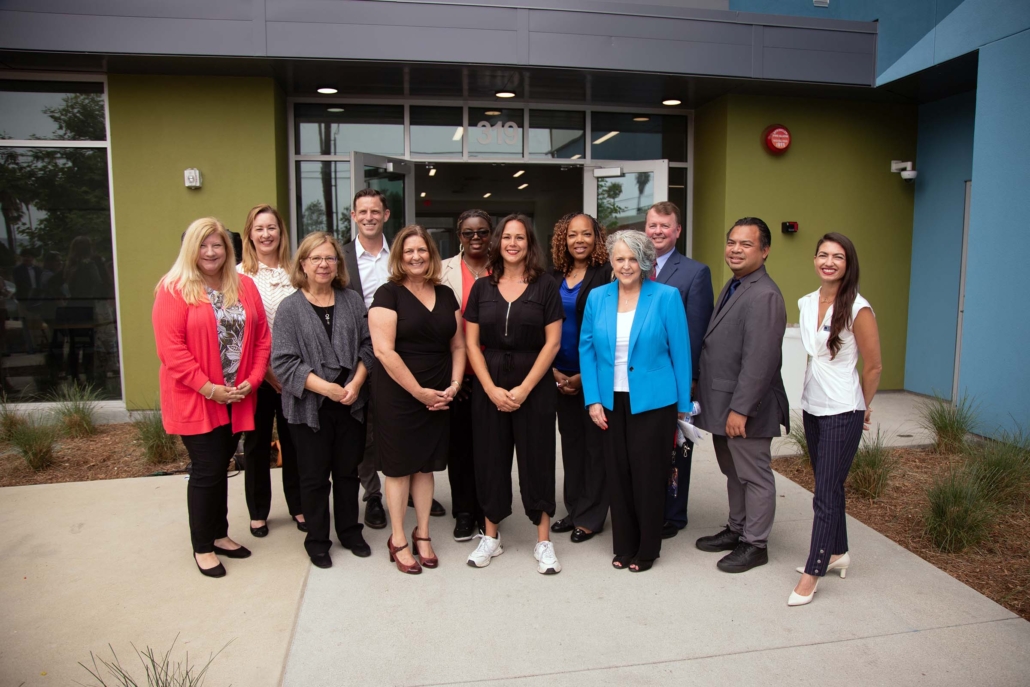Modular Supportive Housing Opens in San Pedro
Affordable nonprofit developer Abode Communities welcomes residents home to first completed replicable, scalable modular supportive housing through the $40 million City of Los Angeles Proposition HHH Housing Challenge, also first HHH opening in San Pedro
SAN PEDRO, CA—Nonprofit affordable housing developer Abode Communities, residents, and San Pedro community members celebrated 89 new permanent homes combined with supportive services for people transitioning from experiencing homelessness. The project, known as Beacon Landing, is the first of five modular supportive housing developments to open its doors as part of a $40 million City of Los Angeles Proposition HHH Housing Challenge.
“Now more than ever, rising insurance premiums and financing timelines are significantly hindering our ability to produce the housing we need to get people off the streets,” said Holly Benson, President & CEO of Abode Communities. “What we’ve delivered here at Beacon establishes a precedent for how nonprofit affordable housing developers can create a path for the way out of the housing and homelessness crisis.”
The $40 million was granted to nonprofit affordable developer Abode Communities, Mercy Housing California, and LA Family Housing (“Collaborative”) to create a replicable and scalable model for streamlining the site selection, land use approvals, design, and financing of supportive housing utilizing prefabricated modular construction. Beacon is the first of five projects totaling 398 supportive homes, and the first of two to be developed by Abode Communities.
“The HHH Housing Challenge was about trying new ways to build housing as quickly as possible for those who need it most, and Abode Communities rose to that challenge,” said Ann Sewill, General Manager of Los Angeles Housing Department. “Our partnership with nonprofit developers played a critical role and the upfront HHH investment, combined with our commitment to expedite land use approvals, will ultimately pay off for future modular projects.”
The project, planned prior to the creation of the City of Los Angeles’ Executive Directive 1, utilized the City’s QPSH ordinance, a tool that helped to identify a formulaic path to ministerial land use approvals across all five developments. This, combined with upfront HHH investment to leverage additional financing and create a $6.18 million Revolving Construction Loan Fund to cover upfront modular fabrication costs, set precedent for subsequent supportive housing developments to be developed as part of the HHH Housing Challenge.
The site is near San Pedro’s West Harbor, currently under revitalization and set to open in 2025. “Renewed tourism at West Harbor is expected to spur workforce growth, placing an even greater need for equitable housing opportunities to support our San Pedro community,” said Amber Sheikh, member of Los Angeles Homeless Services Authority Commission and Council District 15 Working Group on Homelessness. “San Pedro’s been my home for 15 years and it’s truly special watching it grow into a place where everyone can belong.”
“Living at Beacon Landing not only saved my life, but has given me my self worth back,” said Katherine Hove, Beacon Landing resident. “I’m feeling healthier. I’m able to manage my emotions in a better way. I no longer dwell on how to end my life. I thrive on building my shattered past into something beautiful, a life worth living. I have a future now.”
All studio homes are approximately 310 square feet, and feature kitchens, bathrooms, and furnishings including EnergyStar appliances and fixtures. Additional resident amenities are designed to foster community interaction and include a community room with kitchen, a lobby lounge, a landscaped courtyard, onsite laundry, onsite property management, and ample supportive services offices. The development achieved a LEED Gold rating from the U.S. Green Building Council.
LA Family Housing provides onsite supportive services that improve health and healing, promote housing stability, and support independence. Services include case management support, individualized service plans, linkages to health and mental health services, substance use treatment, peer support groups, life skills training, benefits advocacy, and meal and transportation assistance, among more.
Additional financing includes Federal and State Low Income Housing Tax Credit, tax-exempt bonds, an Infill Infrastructure Grant and No Place Like Home funding from State of California Department of Housing & Community Development, Project-Based Vouchers issued by Housing Authority of the City Los Angeles, and permanent and construction loans in partnership with JPMorgan Chase, among more.


